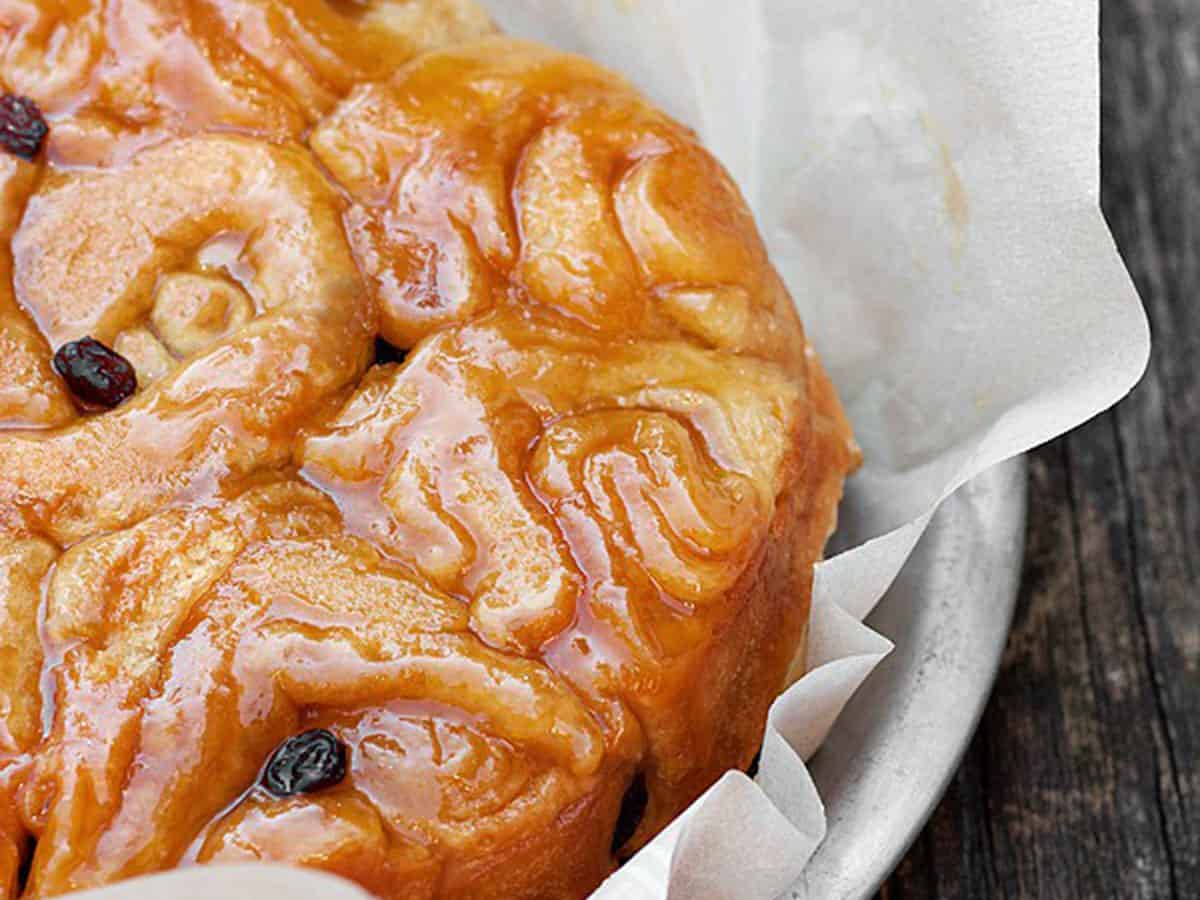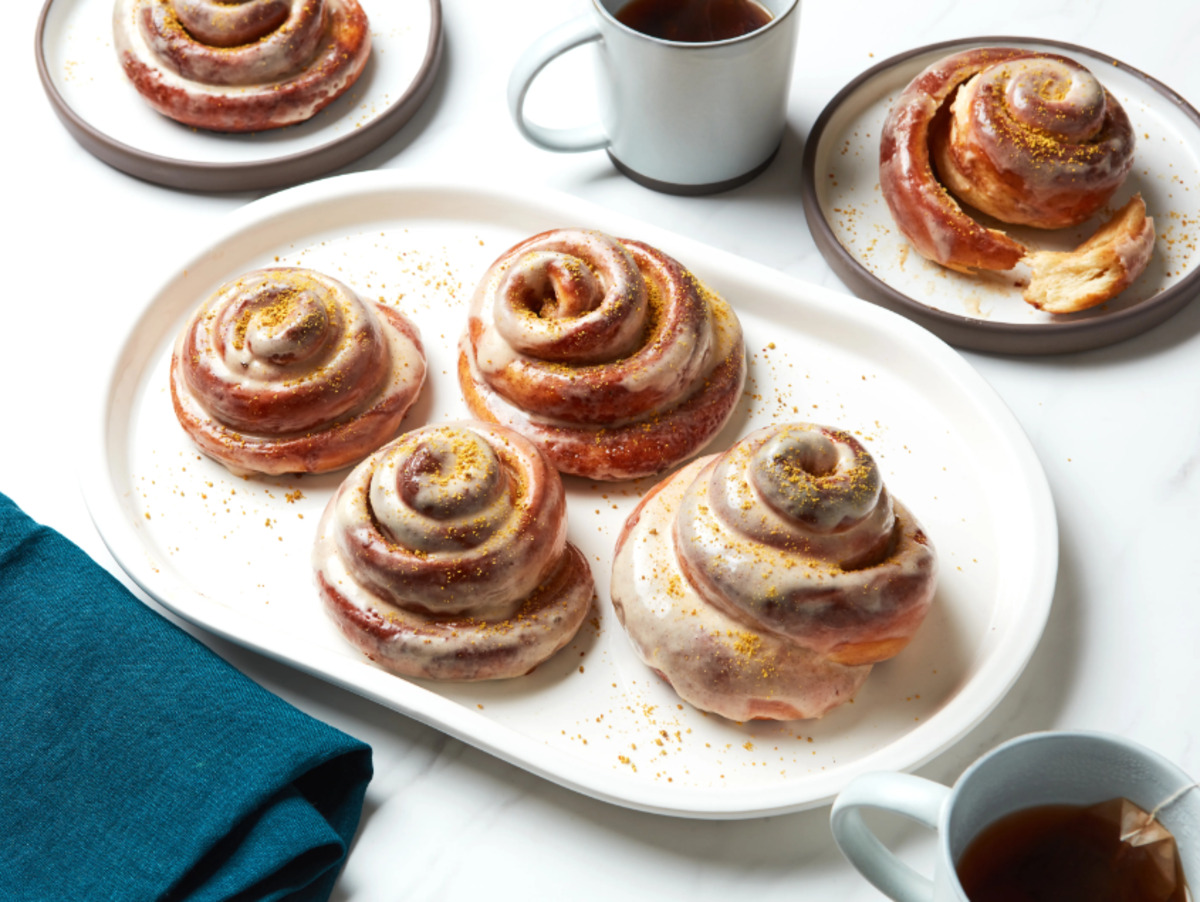
Honey buns are a delicious treat loved by many, known for their sweet, gooey texture and delightful taste. Whether enjoyed as a breakfast pastry or a snack, honey buns offer a tempting indulgence. But what about their nutritional profile? In this article, we will explore 10 fascinating nutritional facts about honey buns, uncovering their calorie content, macronutrient composition, and their place in a balanced diet. So, let’s dive into the world of honey buns and discover the sweet and nutritious side they have to offer!
Calorie Content
Honey buns are typically calorie-dense due to their ingredients and preparation method. A standard honey bun contains approximately 300-400 calories. However, it is important to note that calorie content can vary depending on the brand, size, and additional toppings or fillings.
Carbohydrate Source
Honey buns are primarily composed of carbohydrates. These carbohydrates provide a quick source of energy due to their high glycemic index. However, it is essential to balance carbohydrate intake with other nutrients to maintain a healthy diet.

Added Sugar Content
Honey buns often contain added sugars to enhance their sweetness. These added sugars contribute to the overall carbohydrate content and calorie count of the bun. It is important to be mindful of added sugar consumption and consider moderation in your overall diet.
Fat Content
Honey buns typically contain a moderate amount of fat. The fat content can vary depending on the brand and recipe. Some honey buns may contain saturated fats, while others may use healthier fat sources such as plant-based oils. Reading labels and selecting healthier options is encouraged.
Protein Content
Honey buns are not a significant source of protein. While they may contain small amounts of protein from ingredients like eggs or dairy, the protein content is generally low. Pairing a honey bun with a protein-rich food can help balance your meal and provide more satiety.
Micronutrient Profile
Honey buns do not provide a significant amount of essential vitamins and minerals. They are not considered nutrient-dense food. However, some brands may fortify their honey buns with added vitamins and minerals, increasing their nutritional value slightly.
Fiber Content
Fiber is an important component of a healthy diet, aiding in digestion, promoting satiety, and supporting overall gut health. Unfortunately, honey buns typically have a low fiber content. Pairing a honey bun with fiber-rich foods, such as fruits or vegetables, can help increase your overall fiber intake.
Sodium Considerations
Honey buns may contain a moderate amount of sodium, depending on the recipe and brand. Excessive sodium intake can contribute to health issues, such as high blood pressure. It is important to be mindful of your overall sodium consumption and choose lower sodium options when available.
Portion Control
Due to their calorie density, portion control is crucial when enjoying honey buns. It is recommended to consume honey buns in moderation and balance them with other nutrient-dense foods to maintain a balanced diet.

Homemade vs. Store-Bought
Preparing honey buns at home allows for more control over the ingredients and their nutritional composition. Homemade honey buns can be modified to include healthier alternatives, such as whole grains, natural sweeteners, and reduced amounts of added sugars. Reading labels and selecting healthier store-bought options is also important if homemade preparation is not feasible.
Conclusion
Honey buns offer a sweet and indulgent treat, but it is important to consider their nutritional impact. While they provide a source of energy through carbohydrates and a touch of sweetness, they are not considered nutrient-dense food. Moderation, portion control, and balance are key when incorporating honey buns into a healthy diet. Pairing them with other nutrient-rich foods and selecting healthier options can help create a more balanced eating experience.
Frequently Asked Questions (FAQs)
Are honey buns a healthy breakfast option?
Honey buns, due to their calorie content and added sugars, are not typically considered a healthy breakfast option. It is advisable to opt for more nutrient-dense choices like whole grain cereals, yogurt, or fruits.
Can honey buns be part of a balanced diet?
Honey buns can be enjoyed as an occasional treat within a balanced diet. It is important to be mindful of portion sizes, consider the overall nutritional composition of your meals, and balance them with nutrient-dense foods.
Can honey buns be suitable for individuals with dietary restrictions?
Honey buns may not be suitable for individuals with certain dietary restrictions, such as those following a low-carb or low-sugar diet. It is essential to consider individual dietary needs and consult with a healthcare professional or registered dietitian for personalized guidance.
How can I make honey buns healthier at home?
Making honey buns healthier at home can involve using whole-grain flour, reducing added sugars, and incorporating healthier fats. Experimenting with natural sweeteners and adding fiber-rich ingredients can also enhance their nutritional value.
Can honey buns be enjoyed by individuals with diabetes?
Individuals with diabetes should be cautious when consuming honey buns due to their high carbohydrate and added sugar content. Monitoring portion sizes, considering the overall carbohydrate intake, and consulting with a healthcare professional or registered dietitian are recommended for individuals with diabetes.
Was this page helpful?
Our commitment to delivering trustworthy and engaging content is at the heart of what we do. Each fact on our site is contributed by real users like you, bringing a wealth of diverse insights and information. To ensure the highest standards of accuracy and reliability, our dedicated editors meticulously review each submission. This process guarantees that the facts we share are not only fascinating but also credible. Trust in our commitment to quality and authenticity as you explore and learn with us.
